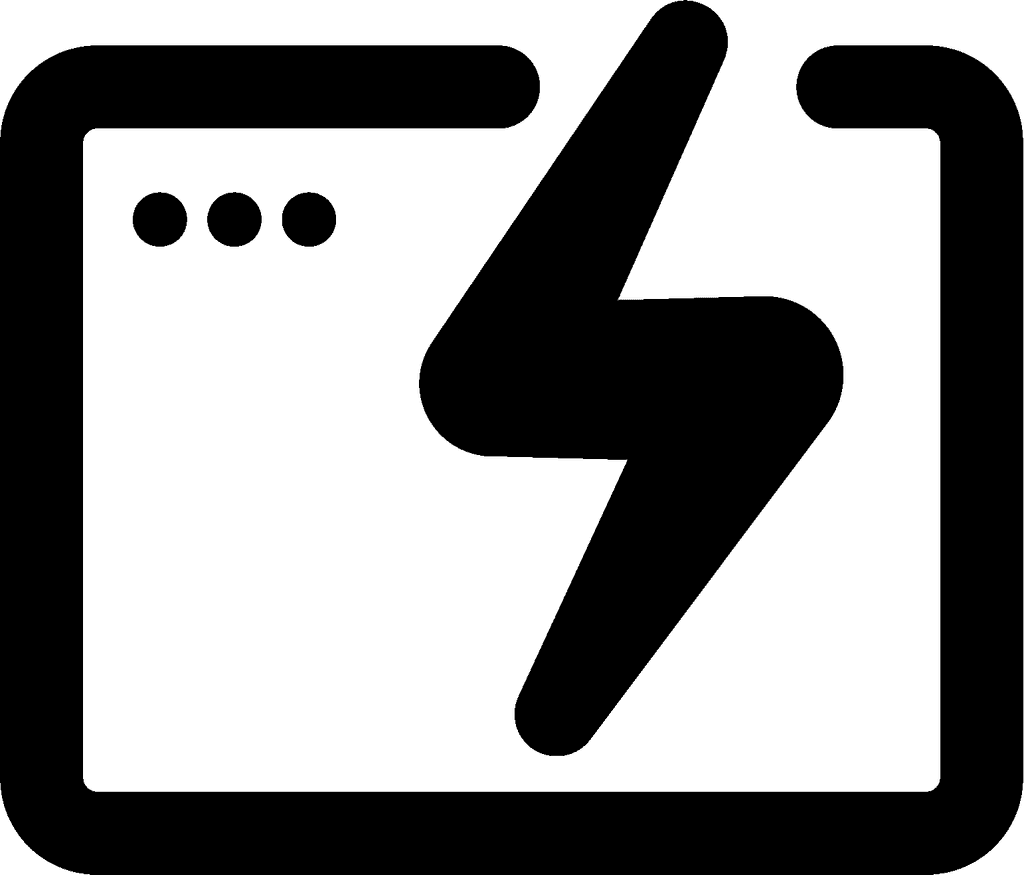AI Chatbot for Employees: Enhancing Workplace Communication and Efficiency
AI chatbots are revolutionizing workplace communication and support. These intelligent virtual assistants use natural language processing and artificial intelligence to interact with employees in human-like ways. AI chatbots provide instant, 24/7 access to information and assistance, boosting employee productivity and satisfaction.
Companies are implementing AI chatbots to streamline internal processes and enhance employee engagement. These chatbots can answer common HR questions, assist with IT troubleshooting, and even provide personalized training recommendations. By automating routine inquiries, AI chatbots free up human staff to focus on more complex tasks and strategic initiatives.
The integration of AI chatbots in the workplace represents a significant shift in how organizations support their workforce. As these technologies continue to advance, they will play an increasingly important role in fostering efficient, responsive, and employee-centric work environments.

Understanding AI Chatbots in the Workplace
AI chatbots are transforming workplace communication and productivity. These intelligent systems leverage natural language processing and machine learning to interact with employees in human-like ways.
Defining AI and Chatbots
AI refers to computer systems that can perform tasks typically requiring human intelligence. Chatbots are software applications designed to simulate human conversation. AI-powered chatbots combine these concepts, creating interactive assistants capable of understanding and responding to user queries.
These advanced chatbots use machine learning algorithms to continuously improve their performance. They can handle complex queries, provide personalized responses, and even anticipate user needs based on historical data.
AI chatbots in the workplace can automate routine tasks, answer employee questions, and provide support across various departments. This technology streamlines operations and enhances employee experience.
Evolution of Chatbots to AI-Powered Assistants
Early chatbots relied on simple keyword matching and predefined responses. They had limited capabilities and often frustrated users with their inability to understand context or nuance.
Modern AI-powered chatbots represent a significant leap forward. These systems use sophisticated natural language processing to comprehend user intent and generate appropriate responses.
Machine learning enables these chatbots to learn from each interaction, refining their responses over time. They can handle increasingly complex queries and adapt to different communication styles.
AI assistants can now integrate with various workplace systems, access relevant data, and provide actionable insights. This evolution has transformed chatbots from basic query responders to valuable digital coworkers.
Role of Natural Language Processing (NLP)
NLP is a crucial component of AI chatbots, enabling them to understand and generate human language. This technology allows chatbots to interpret user queries, regardless of phrasing or language variations.
NLP techniques like sentiment analysis help chatbots gauge user emotions and tailor responses accordingly. Entity recognition allows them to identify important information within messages.
Advanced NLP models can understand context, detect sarcasm, and even interpret emojis. This level of comprehension enables more natural and effective communication between employees and AI assistants.
NLP also facilitates multilingual support, allowing chatbots to communicate with a diverse workforce. As NLP technology continues to advance, AI chatbots become increasingly sophisticated and valuable in the workplace.
Implementation Strategies for AI Chatbots
Implementing AI chatbots effectively requires careful planning and execution. Strategic approaches can maximize their impact on employee experiences and organizational efficiency.
Onboarding and Training with Chatbots
AI chatbots streamline employee onboarding processes. They provide instant access to company policies, procedures, and training materials. New hires can ask questions and receive immediate responses, reducing the burden on HR staff.
Chatbots facilitate self-paced learning by guiding employees through training modules. They can quiz users, track progress, and offer personalized recommendations based on individual performance.
For ongoing training, chatbots send reminders about required courses and deadlines. They also provide quick refreshers on specific topics, ensuring employees maintain up-to-date knowledge.
Integrating Chatbots into HR Tasks
HR departments benefit from chatbot automation of routine tasks. Chatbots handle leave requests, update employee information, and answer common queries about benefits or payroll.
They schedule interviews, send reminders, and collect feedback from candidates and interviewers. This frees up HR professionals to focus on strategic initiatives and complex issues.
Chatbots also assist with performance management by collecting data, scheduling reviews, and providing reminders for goal-setting sessions.
Customization and Personalization
Tailoring chatbots to company culture and specific needs enhances their effectiveness. Organizations can customize the chatbot's language, tone, and knowledge base to align with their values and processes.
Personalization features allow chatbots to provide targeted support. They can remember individual preferences, past interactions, and job roles to offer relevant information and assistance.
AI-powered chatbots learn from each interaction, continuously improving their responses. This adaptability ensures they remain valuable tools as organizational needs evolve.
Advantages of AI Chatbots for Employees
AI chatbots offer numerous benefits for employees in the workplace. These tools streamline processes, enhance experiences, and improve service delivery across organizations.
Streamlining Communication
AI chatbots facilitate faster and more efficient communication within companies. They provide instant responses to common queries, reducing email clutter and wait times. Employees can quickly access information about company policies, benefits, and procedures.
Chatbots also assist in scheduling meetings and managing calendars. This automation saves time and minimizes conflicts in booking conference rooms or coordinating with colleagues.
For remote workers, AI chatbots offer 24/7 support. This constant availability ensures that employees in different time zones can get help when needed.
Enhancing Employee Experience
AI chatbots contribute to a more positive work environment. They offer personalized assistance tailored to each employee's needs and preferences.
These tools provide quick access to training materials and resources. Employees can easily find relevant information to improve their skills or solve work-related problems.
Chatbots also facilitate anonymous feedback collection. This feature encourages honest communication and helps identify areas for improvement in the workplace.
By handling routine tasks, AI chatbots free up time for employees to focus on more meaningful work. This shift can lead to increased job satisfaction and productivity.
Improving HR Service Delivery
AI chatbots significantly enhance HR service delivery. They handle common HR inquiries efficiently, such as questions about leave policies, benefits, or payroll.
Employees can submit and track requests through chatbots, streamlining processes like time-off applications or expense reports. This automation reduces paperwork and speeds up approval times.
Chatbots also assist in onboarding new hires. They provide essential information and guide new employees through initial tasks and paperwork.
For existing staff, AI chatbots offer easy access to performance metrics and goal-tracking tools. This transparency helps employees stay aligned with company objectives and manage their career development.
Operational Benefits and Efficiency Gains
AI chatbots offer significant advantages for businesses, streamlining processes and enhancing productivity across multiple departments. These intelligent systems provide rapid solutions to common queries, revolutionize recruitment, and deliver valuable insights through data analysis.
Automating Routine Queries
AI chatbots excel at handling routine employee inquiries, freeing up HR staff for more complex tasks. They provide instant responses to questions about company policies, benefits, and procedures 24/7. This automation reduces wait times and improves employee satisfaction.
Chatbots can be programmed with a vast knowledge base, ensuring consistent and accurate information delivery. They can also guide employees through common processes like leave requests or expense submissions, reducing errors and processing time.
By automating these routine tasks, companies can significantly reduce operational costs and improve efficiency. HR teams can focus on strategic initiatives and personal interactions that require human expertise.
Optimizing the Recruitment Process
AI chatbots streamline recruitment by automating initial candidate screenings and scheduling interviews. They can engage with potential candidates, answer frequently asked questions about job openings, and collect preliminary information.
These systems can quickly filter applications based on predefined criteria, shortlisting qualified candidates for human review. This acceleration of the early recruitment stages reduces time-to-hire and improves the overall candidate experience.
Chatbots can also assist in onboarding new employees by providing information about company culture, policies, and procedures. This ensures a smooth transition for new hires and reduces the workload on HR personnel.
Supporting HR Department with Analytics
AI chatbots generate valuable data that can be used to enhance HR strategies and decision-making. They track common queries, employee concerns, and engagement patterns, providing insights into workforce needs and preferences.
These analytics help identify trends in employee satisfaction, pinpoint areas for improvement in company policies, and optimize internal communication strategies. HR departments can use this data to create more targeted training programs and refine employee engagement initiatives.
Chatbots can also assist in generating reports on various HR metrics, such as time-to-hire, employee turnover rates, and training completion rates. This data-driven approach enables HR teams to make informed decisions and demonstrate the impact of their initiatives to company leadership.
Challenges and Ethical Considerations
Implementing AI chatbots for employees presents several key challenges that organizations must carefully navigate. These include protecting privacy, ensuring fairness, and maintaining human connections.
Addressing Privacy and Data Security
AI chatbots collect and process large amounts of employee data. Organizations must implement robust security measures to protect this sensitive information. Encryption, access controls, and regular security audits are essential.
Data retention policies need clear guidelines. Companies should only keep employee data for as long as necessary. Transparent communication about data usage builds trust.
Employee consent for data collection is crucial. Chatbots should clearly explain what information they gather and how it will be used. Opt-out options give employees control over their data.
Mitigating Bias and Ensuring Accuracy
AI systems can perpetuate existing biases if not carefully designed. Regular audits of chatbot responses help identify and correct biased language or unfair treatment.
Diverse development teams contribute varied perspectives, reducing the risk of bias. Including employees from different backgrounds in testing phases improves accuracy.
Continuous monitoring and updating of AI models is necessary. As language and workplace norms evolve, chatbots must adapt to maintain relevance and avoid outdated biases.
Maintaining the Human Touch
While AI chatbots offer efficiency, they lack human empathy and nuance. For sensitive issues like mental health concerns or complex workplace conflicts, human intervention remains crucial.
Clear escalation paths to human HR representatives should be established. Chatbots must recognize their limitations and seamlessly transfer conversations when necessary.
Balancing automation with human interaction preserves workplace relationships. AI should complement, not replace, face-to-face communication between employees and managers.
Regular employee feedback on chatbot interactions helps refine the system. This ensures the technology meets real needs and maintains a positive user experience.
Frequently Asked Questions
AI chatbots offer numerous benefits for HR processes and employee engagement. They can streamline operations, provide quick access to information, and enhance the overall employee experience.
What are the advantages of integrating an AI chatbot into HR processes?
AI chatbots can automate routine HR tasks, saving time and resources. They provide 24/7 support for employees, answering common questions instantly. Chatbots also ensure consistency in information delivery across the organization.
How can AI chatbots improve employee satisfaction and engagement?
AI chatbots offer personalized support to employees, addressing their queries promptly. They can provide tailored recommendations for training and development opportunities. Chatbots also facilitate easier access to company policies and procedures.
What are some successful examples of AI chatbots used in HR?
IBM's Watson-powered chatbot assists employees with HR-related inquiries. Unilever's Una helps streamline the recruitment process. Overstock's Mila handles employee leave requests and scheduling efficiently.
In what ways do AI chatbots assist with employee benefits management?
Chatbots can explain benefits packages to employees in simple terms. They help staff enroll in or modify their benefit plans easily. AI assistants can also remind employees about important deadlines related to benefits.
Can AI chatbots be effectively used for internal employee communications?
Yes, AI chatbots can disseminate important company announcements quickly. They can gather feedback from employees through surveys and polls. Chatbots also facilitate seamless communication between different departments.
What are the key features to look for when selecting an AI chatbot for HR purposes?
Natural language processing capabilities are essential for understanding employee queries. Integration with existing HR systems is crucial for accessing relevant data. Customization options allow the chatbot to align with company culture and specific needs.

Build a more powerful help desk with Risotto
Minimize Tickets and Maximize Efficiency
Simplify IAM and Strengthen Security
Transform Slack into a help desk for every department
Schedule your free demo





